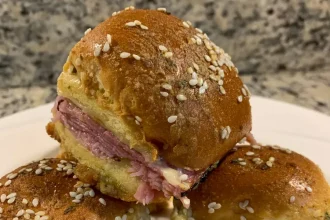The ‘outwork others’ argument is dead or will die pretty soon. Work ethic may have been the most important predictor of any kind of success until now, but soon it won’t be the most important skill.
Don’t get me wrong; work ethic still matters a lot, and always will. But people are already working as hard as they can. And hence, the future calls for efficiency. And efficiency is simply to do less yet get disproportionate benefits.
When we think about it, ‘efficiency’ is a mindset. Some people always do stuff in a conventional way. On the other hand, some people will always be looking for ways to be efficient. I’m the former, trying to be the latter.
Hence, efficiency is a skill you need to practice. You won’t just wake up one day and become efficient. No. You need to ask yourself again and again “How can I be more efficient?” before it manifests in your life.
These are the kinds of questions we address when we think about efficiency:
How can we lose fat with exercises that take up the least of our time?
How can we boost our productivity with the simplest of habits?
How can we become the smartest version of ourselves even if we don’t have hours and hours to read?
How can we learn to control our emotions with simple daily rituals?
In this article, I want to share 20 micro habits that I hope will provide the answers to these questions. We’ll be looking at the easiest habits that can boost your physical health, mental health, productivity, and creativity.
Don’t try to adopt all 20 of them together. Focus on a few, say 4, and when those are ingrained in your life, come back to try out some more. Excited? Let’s dive in!
Here are 20 unsexy micro-habits that save me 30+ hours each week:
1. Get sunlight right after waking up
Chances are you don’t run out to the balcony right after waking up. However, perhaps you should. You might be thinking it’s for the Vit. D but it’s more than that. It will help recalibrate your circadian rhythm.
Our circadian rhythm is mostly determined by two hormones melatonin and cortisol. To fall asleep quickly at night, our cortisol levels should be low and melatonin levels, high. When you don’t get sunlight in the morning, your cortisol levels might not peak enough earlier in the day, and hence stay elevated even when it’s bedtime.
Hence, by getting sunlight first thing in the morning, you make sure that your cortisol levels have peaked as soon as possible and by nighttime, they’ll have shrunken down to low levels enabling you to sleep better.
2. Do a course on stoicism
Micro-habit? Really? Yes, hear me out.
I discovered a lot of Stoicism after becoming a writer. When I ask my friends about it, to my surprise, many people don’t know in-depth about stoicism.
Shame, because Stoicism is literally one of the best philosophies out there and still holds so much value in our modern world. It has the ability to make life so much easier.
However, the texts of Stoicism are hard to break down for everyone. Hence, I believe that everyone should buy a physical copy of the book The Daily Stoic, where the modern-day stoic Ryan Holiday has made Stoicism digestible in the form of 366 less-than-1-minute-to-read lessons, each designated for one day of the year.
3. Read out your purpose out loud
One of the leading experts on longevity, Ben Greenfield (who has reversed his biological age by 17 years) says that the number one key to living a fulfilling and longer life is to live with purpose.
And even though many of us might know that vaguely, Ben suggests that we must have a formal sentence written down that conveys our purpose and that we must read it every day. Ben’s is “to empower people to live more adventurous, joyful and fulling lives.” What’s yours?
Write it down and read it every morning. It will motivate you to work towards your goals and live a more fulfilling life.
4. Reassurance
A while ago, I watched a video on Youtube by The School of Life titled, “What Everyone Wants.” Intrigued, I watched it, and that’s when I learned that what each one of us wants is reassurance.
We all have some battle we’re fighting. Fear is a constant in all of our lives. Even Elon Musk is afraid that perhaps, he’ll die before we get to Mars.
And hence, reassurance in the form of an “It will all be okay” can sometimes be the sweetest sentence we could hear. And because while we won’t always have another mass of flesh and bones to say it to us, we need to do it ourselves.
Hence, every morning I tell myself that it will be okay. I become mindful of my fears and insecurities and suffering, and I tell myself that it will be okay; that my suffering is impermanent.
And after months of doing this, my anxiety levels are lower; I’m learning to take my days one at a time and live an uplifted life. I hope it does the same for you.
5. Contemplate the impermanence of your sensory pleasures
After starting to write, I began reading a lot about Buddhism and also wrote about it. One article I wrote was on the 5 hindrances that Buddha says every monk must overcome. First of those hindrances were sensory pleasures.
We all have some sensory distractions that stop us from achieving our goals. For most of us, it’s sugary food and binge-watching. We cannot resist delicious food, and hence we fail to lose that belly fat. And Netflix has never been more efficient at stopping us from working.
It’s okay to enjoy these. However, when we overindulge, it becomes a problem. Hence, every morning, try to spend some time becoming mindful of your particular sensory distractions and try to contemplate their impermanence.
Tell yourself how the pleasure lasts for so little time but holds the capacity to do so much damage in the long term.
6. Brush with your non-dominant hand
As I dream of becoming a neurologist someday, I read books and blogs by various famous neurologists. Once I read that many neurologists are encouraged to use their non-dominant hands to do tasks to help build dexterity and strengthen neural connections in the brain.
While you don’t have to do everything with your non-dominant hand, brushing your teeth like that is a good place to start. It will help your brain become healthier while at the same time, making you more creative in the long run.
7. Time-block
If you don’t already know about time-blocking, I’m sorry, but you might want to think about living someplace other than under a rock.
Time-blocking is a simple time-management technique by Cal Newport that takes less than 1 minute but leads to so much clarity in your day.
Simply divide your day into 30-minute blocks (or 5-minute blocks if you’re Elon Musk) and assign tasks to them. This will help eliminate taking decisions at the moment and also help you deal with procrastination.
8. Dip your head in cold water
I know you’re sick of people telling you to have cold showers. I know you hate them. So I’ll do you one easier. Don’t have a cold shower, but at least dip your head in a bucket with cold water.
Your brain has a blood-brain barrier whose job is to keep certain harmful substances away from the neural tissue.
However, this blood-brain barrier gets leaky with age, allowing important stuff to leak out, and toxic stuff to get in. As Ben Greenfield mentions in this video, exposing your head to cold is a fantastic way to improve this barrier’s quality.
Hence, if you’re not up for a cold shower, at least try to dip your head in a cold bucket of water.
9. Wash our fruits and veggies with a vinegar solution
According to research, approximately 5.6 billion pounds of pesticides are used each year worldwide, with the United States accounting for 1 billion pounds.
Did I just scare you out of your senses? Maybe not. However, the numbers are still staggering. And unless you’re eating 100% trusted organic food, you’re consuming some of this pesticide.
Hence, it’s a really wise choice to start washing your food the right way.
Simply mix 1 part vinegar with 4 parts water, and soak your fruits and veggies in it for 2–5 minutes, followed by rinsing with normal water. Don’t consume all those chemicals when you don’t have to.
10. Do 30 seconds of pre-meal exercise
We’re taking a page out of Ben Greenfield’s wisdom again. Ben says that controlling glycemic variability is perhaps the most important thing to live longer.
And the easiest way to do that? Just do 30 seconds of exercise like burpees, squats, or jumping jacks before meals. This increase in heart rate will help optimize glycemic variability due to that meal.
Yes! 30 seconds of exercise can help you live longer. Combine this with 10 minutes of walking post-meal, and you get the best out of that meal.
















